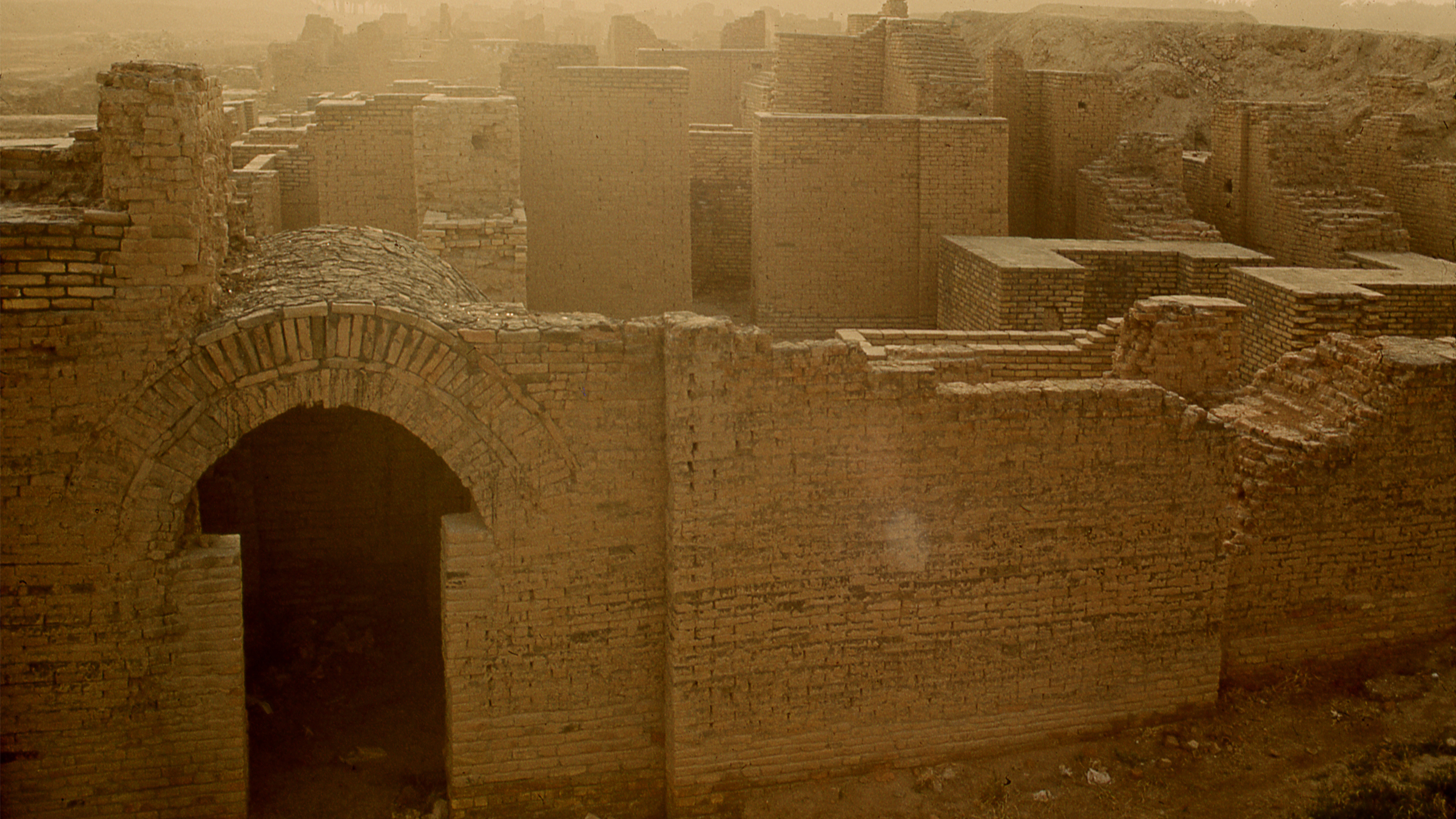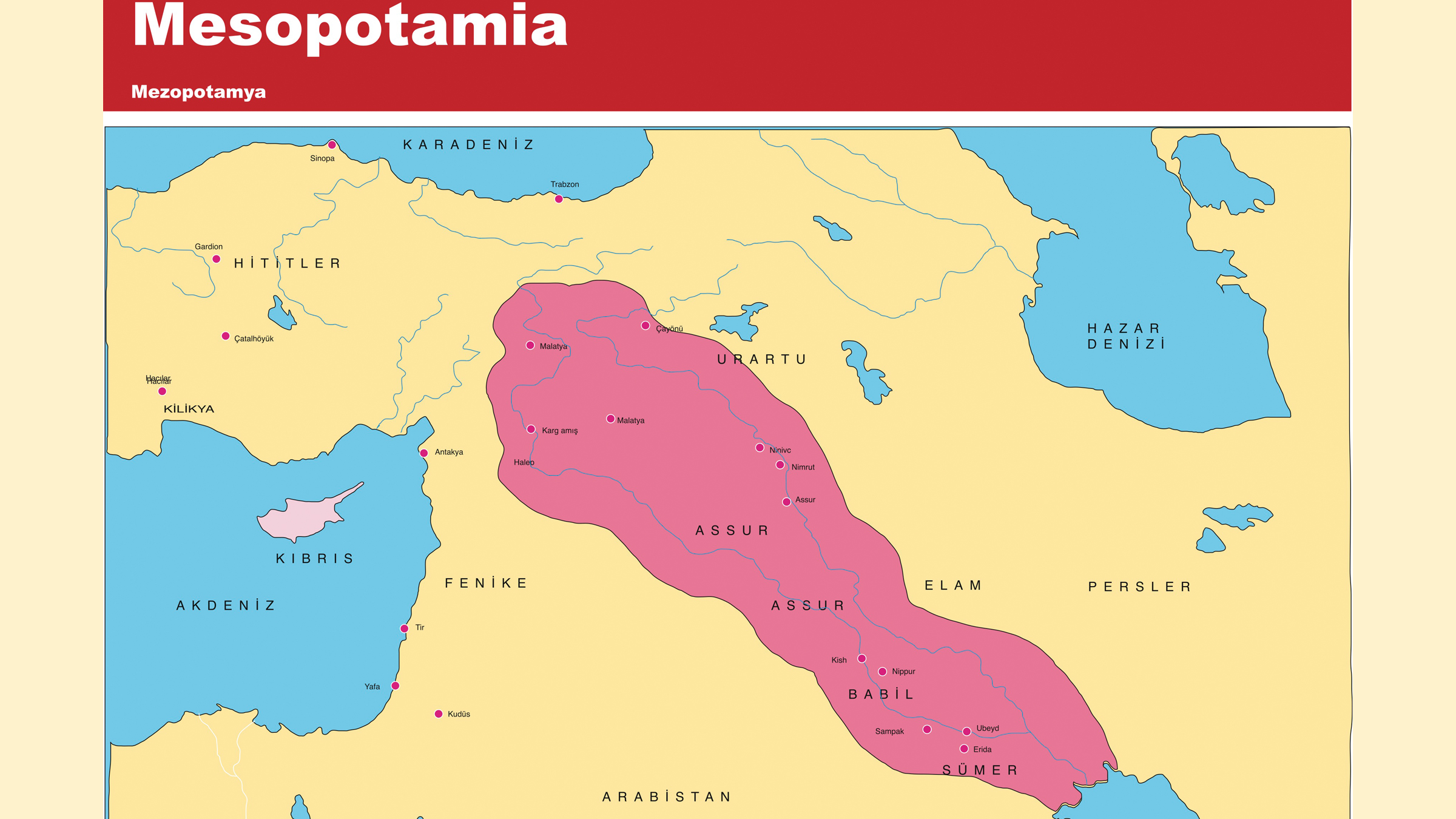Are Mesopotamia and Babylon the same thing?
How are the Babylonian Empire and Mesopotamia different?

In world history class, students often learn that human civilization arose in Mesopotamia — the so-called "Fertile Crescent" — and in the same breath, many teachers dive into the history of Babylon. But are Mesopotamia and Babylon the same thing?
The answer is no, they are not the same; in short, Mesopotamia is a region, and Babylon was an ancient city (and later the center of an empire) within that region.
The word Mesopotamia is an ancient Greek name that is often translated as "the land between two rivers" — the rivers being the Euphrates and the Tigris, both of which originate in eastern Turkey and flow south to the Persian Gulf. According to early Greek sources, the term Mesopotamia "was used for the Syrian Jazirah [part of northeast Syria] and later for the land between Tigris and Euphrates," Lorenzo Verderame, an associate professor of Assyriology at Sapienza University of Rome, told Live Science in an email.
Related: What is the oldest-known archaeological site in the world?
Today, Mesopotamia falls into several countries: Iraq, eastern Syria, southeast Turkey, parts of western Iran and Kuwait. Some of humanity's earliest farmers set up shop in Mesopotamia because the Euphrates and the Tigris rivers frequently flooded, leaving behind nutrient-rich soil that helped crops thrive. And a few millennia ago, Mesopotamia was home to some of the earliest known cities and empires.
In about 4000 B.C. the Sumerians were the first known civilization to arise in the region, and are named after the ancient city of Sumer, which was a few miles south of the modern city of Kut in eastern Iraq. The Sumerians built towering temples known as ziggurats, had a written language, developed irrigation and had a complex pantheon of deities, Live Science previously reported. As the Sumerian civilization went into decline, Babylon became an influential city near the Euphrates River that lasted from about 2000 B.C. to 540 B.C.

The Babylonians achieved remarkable feats, including the publication of Hammurabi's code of law and the creation of the stunning (if the stories are true) Hanging Gardens of Babylon. The ancient denizens of Babylon also developed trigonometry and tracked Jupiter's movements with mathematical models, Live Science previously reported.
Sign up for the Live Science daily newsletter now
Get the world’s most fascinating discoveries delivered straight to your inbox.
At times, Babylon was at the center of a large empire. This empire reached its greatest extent during the rule of King Nebuchadnezzar II (reign 605 B.C. to 562 B.C.), when it stretched from the Persian Gulf to the borders of present-day Egypt. Sometimes, the term "Babylonia" is used to refer to the broader area that Babylon controlled or had influence over.
However, other empires also rose and fell within the ancient Mesopotamian world. The Assyrian Empire, whose well-known cities included Nineveh, Ashur and Nimrud, flourished at times from around 2000 B.C. to around 600 B.C., and clashed with the Babylonains in the 13th century B.C. and seventh century B.C. Many other empires held large amounts of territory in Mesopotamia, including the Persian Empire (from 550 B.C. to 330 B.C.), the Parthian Empire (247 B.C. to A.D. 224), the short-lived empire of Alexander the Great in the fourth century B.C. and the Seleucid Empire (312 B.C. to 63 B.C.).
So if Babylon and Mesopotamia are not the same thing, why does this misconception exist? A Live Science reporter asked experts to get their take on the matter.
It's possible that because ancient Egypt captures more interest among the modern public than other ancient places in the Middle East, people's general knowledge about Mesopotamia and Babylon gets little attention, Frederick Bohrer, professor of art at Hood College in Maryland, told Live Science in an email. Bohrer has studied how people in 19th century Europe imagined Mesopotamia.
"Egypt dominates the imagination of so many, and there is little space for the rest of the Ancient Near East," Bohrer said. Additionally some people lack geographical and historical knowledge about the region, Bohrer said.
For some people, Babylon may be the only location in Mesopotamia that they've heard of. "For those not familiar with the area, Babylon could be the only geographical word they know, and they assume it refers to an area bigger than a city," Agnès Garcia Ventura, a fellow at in the Department of Antiquity and Middle Age Studies at the Autonomous University of Barcelona, told Live Science in an email. Ventura also noted that people may get confused when the term "Babylonia" is used, and may think that it means Mesopotamia.
Originally published on Live Science.

Owen Jarus is a regular contributor to Live Science who writes about archaeology and humans' past. He has also written for The Independent (UK), The Canadian Press (CP) and The Associated Press (AP), among others. Owen has a bachelor of arts degree from the University of Toronto and a journalism degree from Ryerson University.









